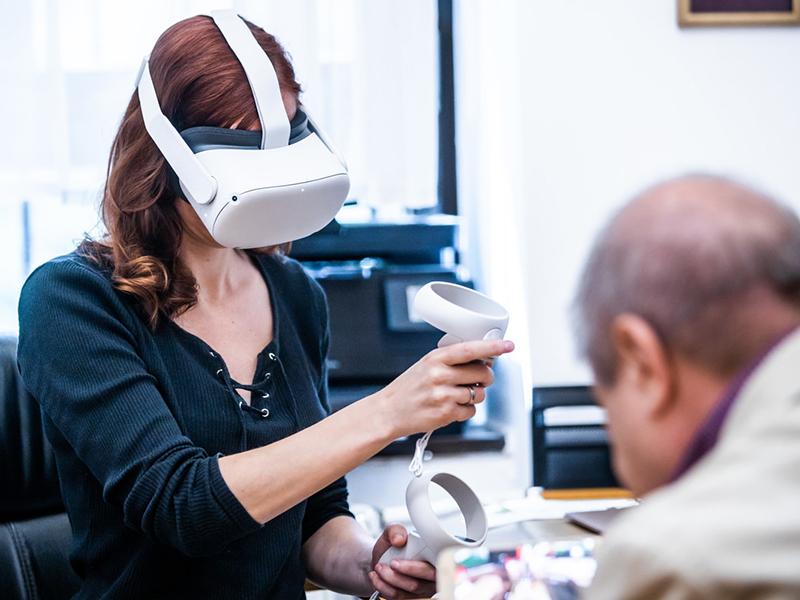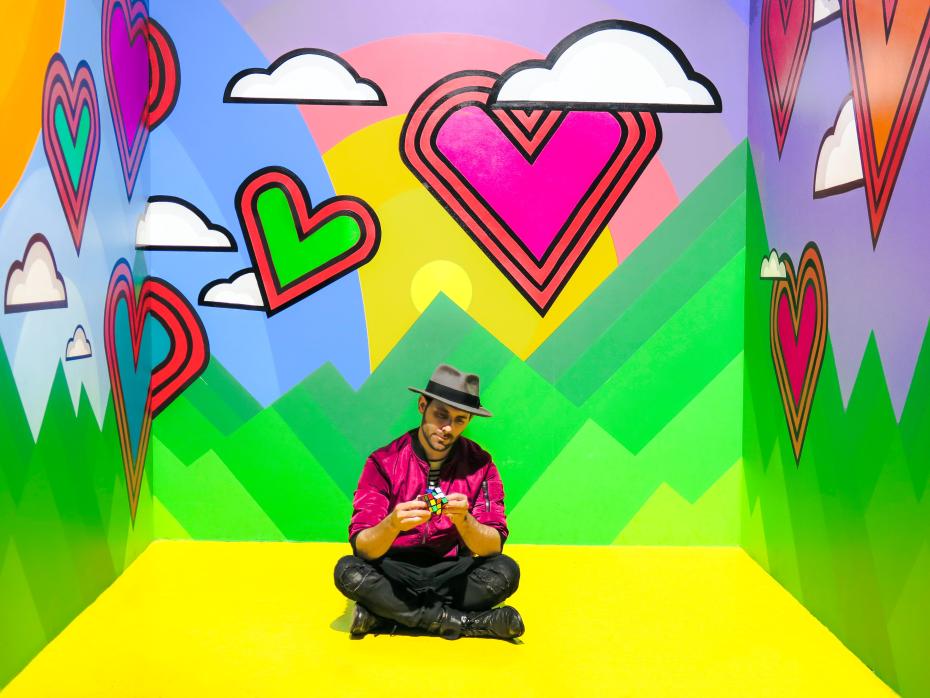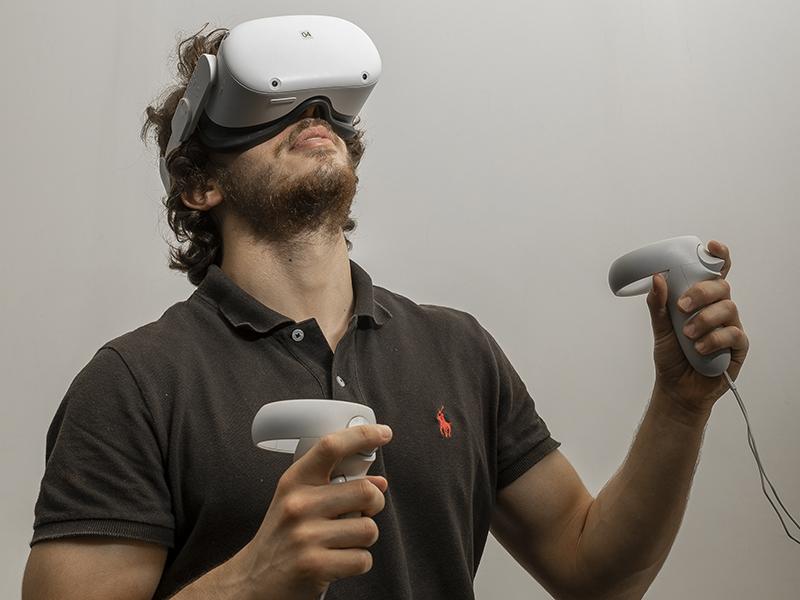
Using VR to change medical students’ attitudes towards older patients
You may also like
If you want to teach me, reach me! This thought inspired me when I started working on how to use virtual reality (VR) applications to teach students and change their attitudes towards patients with dementia. Experiential learning is orders of magnitude more effective than acquiring knowledge from textbooks. VR can provide this kind of experience. And, let’s face it, many students don’t like reading textbooks any more.
Here’s how I use VR technology to deepen medical students’ knowledge about dementia.
Worldwide prejudice against people with dementia
Even though more than 55 million people worldwide suffer from dementia, according to the World Heath Organisation, compassion towards these patients is often lacking. This has negative impacts on clinical outcomes and patient experience. Medical students’ knowledge of dementia, often very low at the start of their university education, shows limited improvement throughout their studies all over the world. They often turn to elderly patients living with dementia with a negative attitude, or stigmatise them before they even meet them. So it seems that they make little use of their studies on dementia.
- Medical teaching resources need to represent all skin colours
- How medical education can benefit from global challenges
- Extended reality for extending education
Thus, medical schools are expected to put more effort into offering their students multifaceted teaching (lectures, seminars and clinical practice) on dementia. Personal experiences significantly influence students’ attitudes, so experiential education has many advantages over teaching based on textbook material alone.
VR experiment: a three-phase activity of empathy
Based on the above, I felt it was worth investing more energy in teaching about dementia. The problem was, with the curriculum being tight, how could I deal with the subject more effectively in less time? My solution was a VR experiment. It has been of great help to me, and as a result, it has been implemented in the framework of other subjects (medical communication, medical psychology and art of learning courses).
The experiment consisted of three phases: pre-test questionnaire and introduction to VR, VR simulation of a patient’s experience, and a post-test questionnaire and reflection.
In the pre-test phase, the students were asked to fill out a questionnaire containing queries regarding their attitude towards dementia and people living with dementia (for example: “How important do you consider studying dementia of the elderly?”, “How difficult do you think the life of elderly people living with dementia is?”). The students then took about 20 seconds to learn how to use the VR kit.
In the experiment itself, the participants were instructed: “You will experience a part of the life of an elderly patient with dementia. You will hear the patient’s thoughts as if they are your own.” During the five-minute VR experience, the students gained experience of how difficult it can be to perform everyday tasks such as making a cup of tea or driving a car. They could experience firsthand the confusion and despair of a person living with dementia.
In the post-test phase, the participants filled out another questionnaire; questions similar to the pre-test were supplemented with queries related to the experience of VR and its use in education. A Likert scale (zero to six points) was used in measuring the extent to which they agreed or disagreed with a particular question or statement. Test results were used to gauge the change of attitude of medical students before and after the experiment. After the second questionnaire, students were given the opportunity to summarise their experiences with VR teaching in a few lines.
Students’ positive feedback in the post-experiment phase
Although the experience lasted only five minutes, it left a deep impression on the students. Their attitudes towards elderly patients living with dementia changed significantly in a positive direction. Some students burst into tears after taking off their VR glasses. One said: “Now I know how I should have treated my grandparents.”
Let me quote some of their written feedback:
“It was very different from, I would say, ‘textbook’ knowledge. I could actually put myself (at least a little bit) in the patient’s shoes.”
“It was a shocking experience. Now I can understand people with dementia much more than before this VR experience. Thank you for having given us this chance.”
“I enjoyed that I could get involved in the situation of patients with dementia instantly, in a way that I would never be able to experience with the help of a ppt [PowerPoint]. It has been a kind of experience that I cannot explain in words. I am really shocked.”
“It would be important for many specialists to try it for their future doctor-patient relationship as well. But not just medical students, everyone should be more involved in it; it would even make life easier for family members.”
A way to the hearts of medical students
This experiment showed that medical students’ attitudes towards older people with dementia can be turned positive with methods that students find interesting and attention-grabbing. Properly used tools of VR may be appropriate to achieve such goals. VR can enhance knowledge based on textbooks or personal encounters, allowing medical students to discover firsthand the thoughts and acts of an elderly patient living with dementia.
Today, more than 100 students have participated in this experiment at Semmelweis University, and their number will increase every semester. Incorporating VR into teaching was an extraordinary experience not only for the students but also for me. It was exceptional to see how a short VR experience could radically change the attitude of medical students towards people living with dementia in a positive direction, and how easily we find the way to the hearts of the students with the help of modern technology.
János Kollár is associate professor in the Institute of Behavioral Sciences at Semmelweis University, Budapest, Hungary.
If you would like advice and insight from academics and university staff delivered direct to your inbox each week, sign up for the Campus newsletter.




